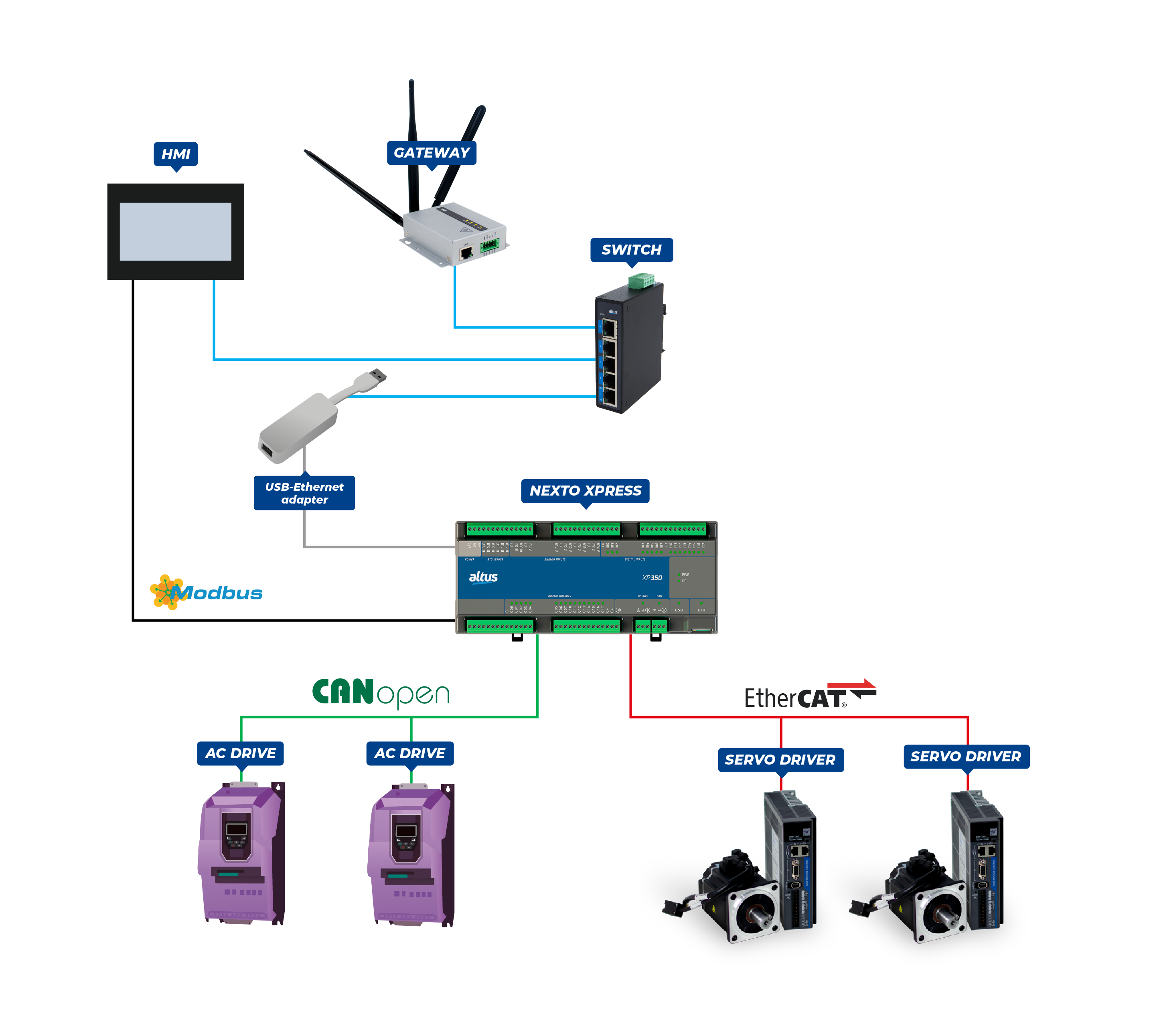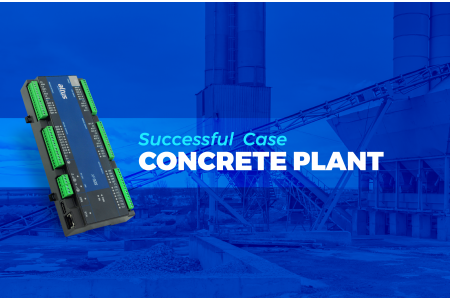
The Importance of Precision for High Performance in the Food Industry
It is a widely recognized fact that Brazil has historically been among the world`s leading food producers. However, in recent years, the country`s export figures have reached even greater heights, due to the quality and standardization of the goods produced. To maintain this prominent position, companies across various segments of the food industry have been investing in automation solutions to ensure precision and high performance in their production lines.
In this article, we showcase a prominent Brazilian machinery manufacturer`s successful implementation of Altus technology to modernize its BOPP labeling line, utilizing the Nexto Xpress Motion Control PLC.
Brazil, the breadbasket of the world
According to a survey by the Brazilian Food Industry Association (ABIA), in 2023, Brazil became the world`s largest exporter of processed foods by volume. "Brazil has established itself as the world`s supermarket," declared João Dornellas, the association`s president.
The entity reports that the processed food and beverage industry generated total revenue of R$ 1.16 trillion, a 7.2% increase compared to the previous year. Exports accounted for R$ 310 billion, representing a 5.2% increase over 2022.
Another study, published by BTG Pactual, also revealed that Brazil has become the world`s largest exporter of soybeans (56% of global exports), followed by corn (31%), coffee (27%), sugar (44%), orange juice (76%), beef (24%), and chicken (33%). Additionally, Brazil is the second-largest seller of ethanol and cotton, two significant commodities in the global market.
The bank`s survey indicates that the country produces enough food to meet the caloric needs of approximately 900 million people, which is equivalent to 11% of the global population.
The report cites a series of figures to illustrate the "miracle of Brazilian tropical agriculture." For instance, grain production increased from 47 million tons in 1977 to 312 million tons today. Since the year 2000, agricultural productivity has risen by 58%. During the same period, emerging countries grew by 37%, and advanced economies by 32%.
How Automation can be a Game Changer for the Industry
To achieve a decisive result like the one reached by the country, it is essential that all stages of the production process are executed with precision and high efficiency. Precise control over all productive aspects must be present from the cultivation of goods to the packaging and dispatch of the product. These factors not only ensure the quality of each item but also are mandatory requirements for food exports to various countries.
In this context, automation serves as a decisive factor in ensuring precision and high performance across all production stages in the Food Industry. By investing in control and monitoring solutions, companies in the sector can develop efficient applications that prevent waste of products and raw materials while maintaining the industry`s high productivity rate.
With over 40 years of experience in the machinery market, Altus is well-equipped to meet the diverse demands of the food industry. With high-tech products and an experienced technical-commercial team, the company has the necessary know-how to develop customized applications tailored to the specific needs of its clients` businesses.
Recently, a national machine manufacturer turned to Altus for the technology needed to modernize one of its labeling machine lines.
BOPP Labeling Solutions Achieve Enhanced Speed and Accuracy with Altus Technology
In this project, the challenge was to modernize the BOPP labeling line for a traditional machine manufacturer to optimize the equipment’s production speed.
To achieve this goal, our OEM team specialists, part of Altus`s dedicated and customized technical-commercial team serving the machinery segment, developed a new control architecture using the PLC XP350, a model from the Nexto Xpress line that supports Motion Control.
Previously, the line featured a complex architecture comprising inverters, an encoder on the cutter, and a servo motor to drive the label. However, this setup had several limitations and required manual adjustments by the operators. These factors directly impacted the equipment`s precision and reduced the machine`s production capacity.
This type of labeling machine is designed to meet the needs of industries with high production demands, such as the Food, Pharmaceutical, and Hygiene and Cleaning sectors. Therefore, speed and accuracy in the application of each label were imperative factors.
By utilizing Motion Control technology embedded in the XP350 PLC, Altus`s OEM team successfully implemented a high-precision solution for adhesive positioning at extremely high speeds, overcoming previous performance limitations of the machine line.
This achievement was made possible by the Nexto programmable controller`s ability to precisely synchronize servo motors in high-performance applications.

Architecture used in the machine
The new architecture also enables full machine parameterization via the HMI, remote access for the support team, and provides statistical productivity data of the equipment.
See also: Automated double sleeve labeling machine with Altus PLCs
Introducing the XP350, Altus` solution for Motion Control
Designed to deliver performance and high connectivity for a wide range of industrial processes, the Nexto Xpress family offers various multifunctional programmable controller options ready to connect your business to the IIoT Universe. Developed to meet the demands of packaging machines and material assembly lines, the XP350 is the first Motion Control PLC in the Xpress line.
Designed to enhance the safety and flexibility of machines and processes requiring precise motion control, the PLC can operate in loops with up to 4 axes of motion control (X, Y, Z, and A). When used in conjunction with Altus`s high-performance, quick-response servo drives, the XP350 PLC forms a comprehensive motion control solution for applications where power, efficiency, and motion precision are essential.
To meet the high precision demands in machines and processes, the controller, along with the servo drivers, supports EtherCAT Master and CANopen, two of the main communication protocols used in the industry. Additionally, it supports PLCopen Motion Control Part 1 function blocks for single-axis control, multi-axis synchronization, electronic gearing (CAM), a special editor for motion planning (CAM), among others.
Want to learn more about the Nexto Xpress Motion Control PLC? Click here to download the technical documentation and receive a contact from our commercial team.





